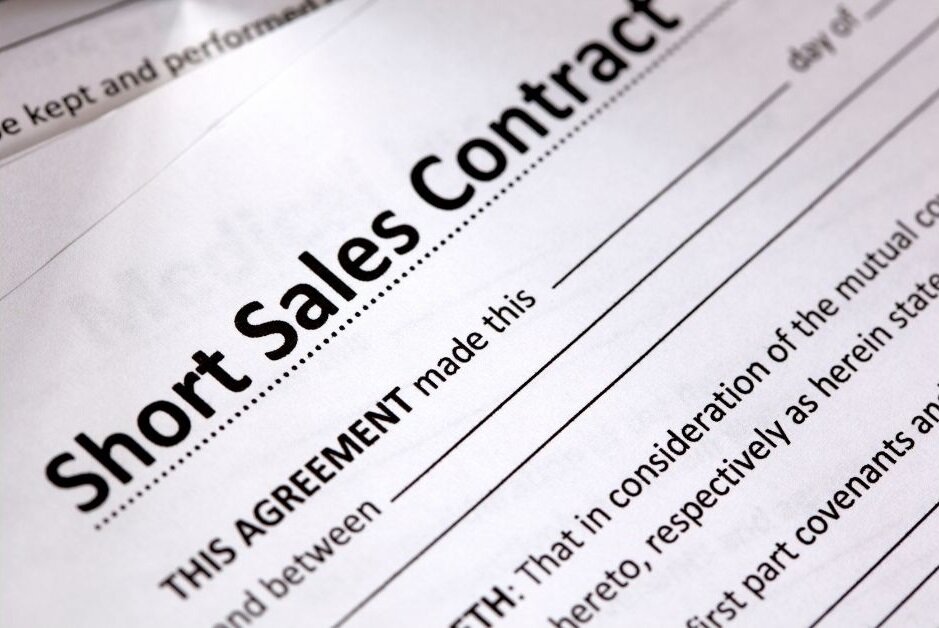
So, you’re looking for a good deal and considering buying a short sale on a house? It could be a smart move if you know what you’re getting into. A short sale on a house lets you buy a property for less than what the owner owes on their mortgage, possibly saving you some serious money. But, hold on. This process has its own set of challenges and complexities you should know about before diving in. Having in-depth understanding on buying a short sale on house gives you an edge over other investors/buyers.
What Is a Short Sale on a House?
A short sale on a house happens when the homeowner sells their property for less than what they owe the bank. This usually comes up because the owner is facing some sort of financial hardship. Maybe they lost their job or are dealing with an illness, making it impossible to keep up with mortgage payments. In this situation, the lender has to agree to the sale since they’re taking a loss on the loan. So, if you’re thinking about going this route, be ready for a bit of a wait—it’s not as simple as a regular home sale.
How Is a Short Sale Different from Foreclosure?
Foreclosure and a short sale on a house are not the same thing. In a foreclosure, the lender takes the house after the owner stops paying the mortgage. The bank becomes the new owner, and the person who owned the home is usually forced to leave. With a short sale on the house, the homeowner is still involved. They sell the house themselves but need the bank’s approval to complete the deal. So, it gives the homeowner a little more control, but both scenarios happen because someone couldn’t keep up with their mortgage.
The Benefits of Buying a Short Sale
So, why bother with buying a short sale? Well, for one, you might get a good deal. Often, homes are sold for less than their market value. This can be great for someone looking to build home equity without paying top dollar. However, the trade-off is that these properties are sold “as is.” That means whatever repairs or issues the home has, you’ll be the one handling them after the purchase. Still, for many buyers, the lower price makes up for the added responsibility.
Things to Know Before Buying a Short Sale On House

Before jumping into buying a short sale on a house, it’s important to be fully informed about the process. A short sale can offer great opportunities, but it also comes with unique challenges that differ from traditional home buying. Below are seven key aspects you should be aware of before making a decision.
1. Work with an Experienced Real Estate Agent
You’re gonna need a real estate agent who really knows their stuff when it comes to short sales. These types of deals are more complicated than your typical home purchase, so having someone with experience can make all the difference. A good agent will help you navigate the paperwork, negotiate with the lender, and handle all those details that could otherwise slow you down. And, since the local real estate market can vary a lot, an agent with deep local knowledge can also help you find the best deals faster.
2. Understand the Lender Approval Process
Here’s the deal—buying a short sale isn’t just between you and the seller. The lender has to approve the sale too, and that can take a while. The lender approval process can drag on for weeks, even months, especially if there’s more than one loan on the house. The lender’s job is to make sure accepting your offer is better than going through a foreclosure. So, patience is key here. If you’re looking to move in right away, a short sale on house may not be the right fit for you.
3. Conduct a Thorough Home Inspection
Short sales are sold “as is,” meaning you get the house in whatever condition it’s in—good or bad. This makes a home inspection absolutely essential. Short sale homes can be in rough shape, often because the homeowner has been struggling to maintain it due to financial hardship. A detailed inspection will help you figure out what kind of repairs or upgrades you’re in for, so you’re not caught off guard after closing the deal. Structural issues, leaks, electrical problems—you need to know about all these things beforehand.
4. Get Your Mortgage Pre-Approved
When you’re buying a short sale on a house, having your financing in place is crucial. Sellers (and lenders) will want to know that you’re a serious buyer. That’s why getting your mortgage pre-approved by a mortgage lender is so important. A pre-approval letter shows that you’re ready to make a deal, which can speed up the process. Plus, it gives you a stronger position when negotiating with the seller and lender, as it shows you’re prepared and committed.
5. Prepare for Potential Delays
You need to know upfront that buying a short sale on a house will almost always take longer than a regular sale. Between waiting for lender approvals and dealing with possible liens or title issues, things can drag on. Some buyers get frustrated because they expect the sale to go through quickly, but that’s rarely the case. If you’re under a tight timeline, this probably isn’t the best route. But, if you’re okay with waiting, the potential savings can make the extra time worth it in the long run.

Find a Good Real Estate Agent in San Francisco
Hire a real estate agent in San Francisco, CA
6. Evaluate the Financial Situation of the Property
Before you even think about making an offer, you need to dig into the homeowner’s financial situation. Are they deep in home equity debt? How much do they owe compared to what the house is worth? If the house is “underwater” (meaning the owner owes more than the home’s value), that could be a red flag. Also, make sure the seller has provided the lender with all the required paperwork. A lot of times, delays happen because the seller didn’t submit everything the lender needs, like proof of financial hardship.
7. Be Ready for Additional Costs
Even though buying a short sale on house can mean paying less than market value, don’t forget about the extra costs that can pop up. The house is sold “as is,” so you’re likely gonna need to spend money on repairs, possibly even major ones. Also, you might have to cover certain closing costs or unpaid liens. Unlike a traditional sale where the seller might help cover these costs, with a short sale, those expenses often fall on the buyer. Make sure your budget has room for these extra costs, or you could find yourself in a financial bind.
Why Buying a Short Sale Can Be a Great Opportunity

a short sale property
Buying a short sale on house is a great opportunity if you’re willing to put in the time and effort. Lenders usually prefer short sales to foreclosures because it saves them money, so they’re often willing to accept reasonable offers. That means you could walk away with a solid deal. But remember, patience is key.
For those in competitive markets like San Francisco, We Buy Houses Countywide offers a simple way to avoid the lengthy process. Whether you’re selling or buying a short sale, working with seasoned pros like Kevin Roberts, with over 40 years in the business, makes things a whole lot easier.
Challenges of Buying a Short Sale on House
Even with all its benefits, buying a short sale comes with some challenges. Here’s what you might face:
- Long Wait Times: The approval process can take months.
- No Guarantees: The lender might reject your offer.
- As-Is Condition: You’ll be responsible for any repairs, some of which might be pretty expensive.
- Market Value Offers: Lenders don’t always accept low-ball offers. You might have to offer close to market value, even though it’s a short sale.
Final Thoughts: Is Buying a Short Sale Right for You?
If you want to save money and are okay with waiting, buying a short sale on a house could be a smart choice. Just keep in mind that the process can take time and the house will likely need repairs. Working with an experienced real estate agent and getting your financing lined up can help things move along smoothly. If you’re dealing with financial hardship, consider reaching out to We Buy Houses Countywide. They have decades of experience and can help make the process quicker and easier.
FAQs
- What does a “short sale” mean?
A short sale happens when a house is sold for less than the outstanding mortgage, and the lender has to approve the sale.
- Can I negotiate the price of a short sale home?
Yes, but the lender has to approve your offer. They might ask for a price closer to market value.
- How long does it take to close on a short sale?
It can take months. The lender’s approval process is usually the reason for the delay.
- Do short sale homes come with extra costs?
Yes. You’ll likely need to pay for repairs and may also have to cover closing costs or unpaid liens.
- Is a short sale better than a foreclosure?
For sellers, yes. A short sale is less harmful to their credit compared to a foreclosure.
Resources:
